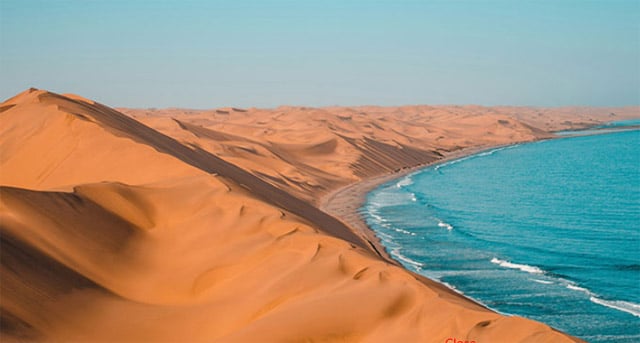
PARIS, Nov 27, 2024 (BSS/AFP) - Southern Africa's sparsely populated desert
nation of Namibia holds presidential and legislative elections on Wednesday.
Here are five things to know about the uranium-rich country:
- First 20th-century genocide -
Around 20 years after Germany colonised the territory, its forces carried out
what many historians consider the first genocide of the 20th century.
Imperial German troops killed around 70,000 men, women and children of the
Indigenous Herero and Nama peoples, who rebelled against colonial rule
between 1904 and 1908.
In 2021, Germany recognised the genocide and pledged more than one billion
euros ($1 billion) in development aid over 30 years. The offer was rejected
and Namibia has asked for reparations.
- Liberation party dominance -
The South West Africa People's Organisation (SWAPO) led Namibia to
independence from South Africa in 1990 and has been the dominant party since,
although it did lose ground in the last elections in 2019.
The current president, 83-year-old Nangolo Mbumba, came to power in February
following the death of his predecessor Hage Geingob at the age of 82.
The SWAPO presidential candidate in Wednesday's elections is Mbumba's vice
president, Netumbo Nandi-Ndaitwah, 72.
- Desert nation -
Home to nearly three million people, Namibia has one of the world's lowest
population densities at more than three people per square kilometre (7.5 per
square mile), according to the World Bank in 2023.
It is the driest country in sub-Saharan Africa and takes its name from the
Namib, considered the oldest desert in the world and famed for its giant sand
dunes. The desert runs along the 1,500-kilometre (930-mile) Atlantic
coastline.
Around two-thirds the size of neighbouring South Africa, Namibia is rich in
wildlife and game reserves. Tourism accounts for around seven percent of GDP.
- Uranium exporter -
Namibia is the world's third or fourth biggest natural uranium producer,
depending on the year, and supplies the radioactive metal to countries
producing nuclear power, including France.
Its identified uranium resources are about five percent of the world's known
total, according to the World Nuclear Association.
The first commercial uranium mine started up in 1976 and the industry expects
to grow as more countries turn to nuclear power for electricity, including
China and India.
Namibia is also rich in diamonds and hopes to exploit its natural gas and oil
deposits.
- Drought and cull -
In May, the country decreed a state of emergency as drought hit the region.
By some accounts, it is the worst drought in a century.
The government announced in August a cull of more than 700 wild animals,
including 83 elephants, to provide food for people affected by crop failure
while reducing the pressure on grazing and water supplies.